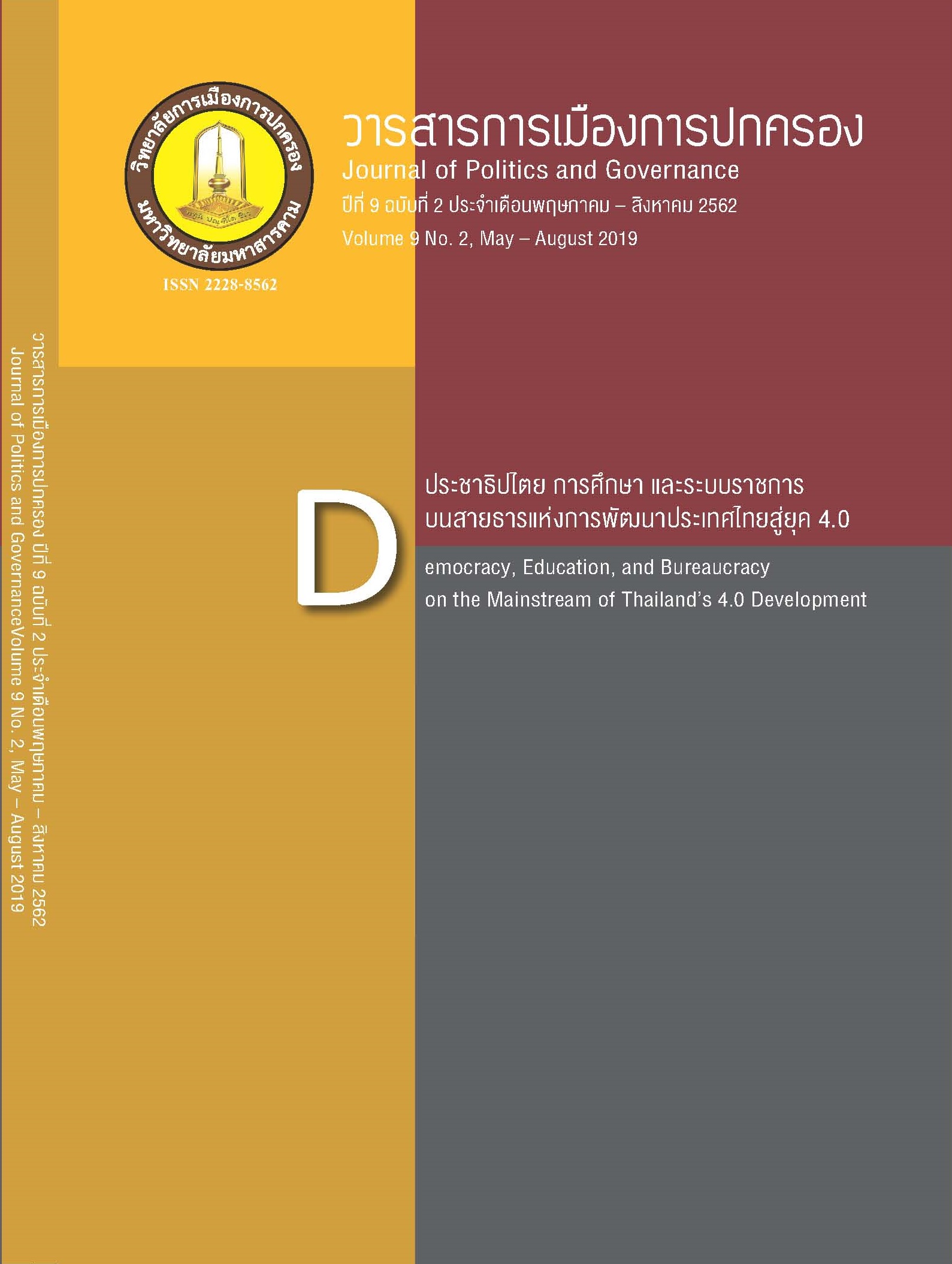Assessment of living arrangement on social well-being of rural elders at Bangkontee district, Samut Songkram
Main Article Content
Abstract
Thailand is facing aging society under the circumstances where the perspective of caring for older persons by the family is different from the past. The mobility of socio-economic condition has put profound impact on the well-being of older persons when their adult children are not the main caregivers for the older parents. The objective of this research is to identify the pattern of living arrangement and its impact on well-being of Thai rural elders. The research was based on semi-structured interviews with Thai citizens 60 years and older in Bangkontee district, Samut Songkram province. The findings indicated that living arrangement had significant impact on the health and financial condition of the rural elders. Older persons residing in a household without family members had less satisfaction for their health status and financial security. However, the findings had shown that the older persons’ ability to conduct daily activities independently were significant. Hence, they were able to attend social activities provided by the local administrative organization and enhance their social well-being. Policy recommendations include supporting local government to establish social networking activities for the elderly regularly and promoting elderly values within the family institutions.
Article Details
References
Bengtson, V. L., & Putney, N. M. (2006). Future Conflicts across Generations and Cohorts In J. A. Vincent, C. Phillipson & M. Downs (Eds.), The Futures of Old age. London: Sage Publications.
Bongaarts, J., & Zimmer, Z. (2002). Living Arrangements of Older Adults in the Developing World: An Analysis of Demographic and Health Survey Household Surveys. Journal of Gerontology, 57B(3), 145-157.
Carney, D. (1999). Approaches to Sustainable Livelihoods for the Rural Poor Poverty Briefing (pp. 1-3).
Chen, F., & Short, S. E. (2008). Household Context and Subjective Well-Being among the Oldest Old in China. Journal of Family Issues, 29(10), 1379-1403.
Cherlin, A. J. (1999). Going to Extremes: Family Structure, Children's Well-Being and Social Science. Demography, 36(4), 421-428.
Davidson, K. (2012). Flying Solo in Old Age: Widowed and Divorced Men and Women in Later Life The Futures of Old Age (pp. 172-179). London: Sage Publications.
Knodel, J., & Chayovan, N. (2008). Population Ageing and the Well-Being of Older Persons in Thailand. Ann Arbor: University of Michigan.
Knodel, J., & Saengtienchai, C. (2005). Rural Parents with Urban Children: Social and Economic Implications of Migration on the Rural Elderly in Thailand Population Studies Center Research Report. Ann Arbor: University of Michigan.
Mehta, K. K. (2006). A Critical Review of Singapore's Policies Aimed at Supporting Family Caring for Older Members. Journal of Aging and Social Policy, 18(3-4), 43-57.
National Statistical Office. (2010). Population Census. Bangkok: Ministry of Information and Comunication Technology.
Prasartkul, P. (2010). Low Fertility Rate in Thailand, Population and Development Newsletter.
Sodei, T. (2004). Families in North-East Asia. Gerontology International, 4, 98-100.
Thanakwang, K., & Soonthorndhada, K. (2006). Attributes of Active Ageing among Older Persons in Thailand: Evidence from the 2002 Survey. Asia-Pacific Population Journal, 21(3), 113-135.
Tsuno, N., & Homma, A. (2009). Ageing in Asia - The Japan Experience. Ageing International 34(1-2), 1-14.
United Nations. (2015). World Population Ageing. New York.
Vincent, J. A., Phillipson, C., & Downs, M. (2006). The Futures of Old Age. London: Sage Publications.
White, S. C. (2015). Wellbeing and Quality of Life Assessment. Rugby, UK: Practical Action Publishing.


